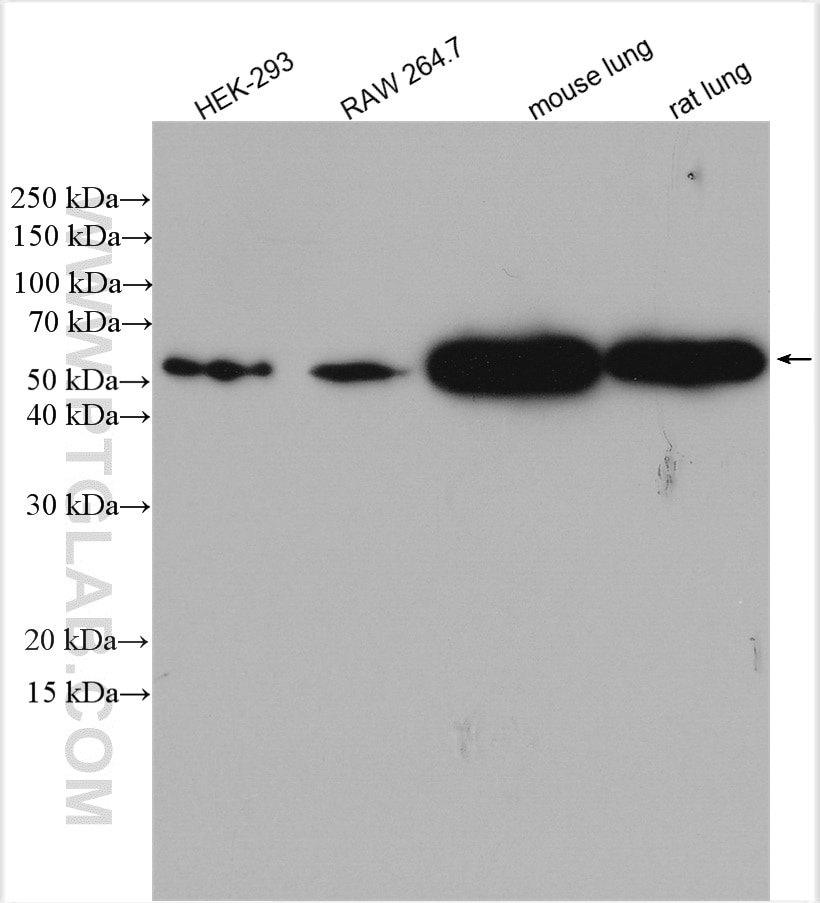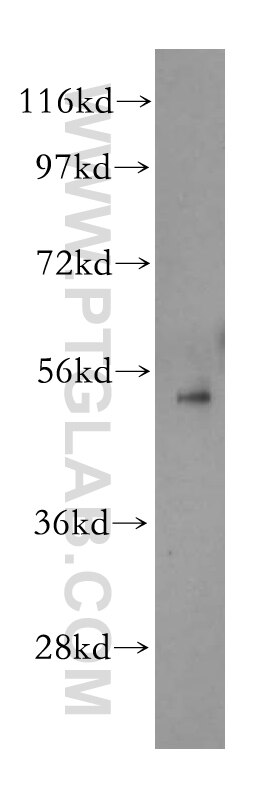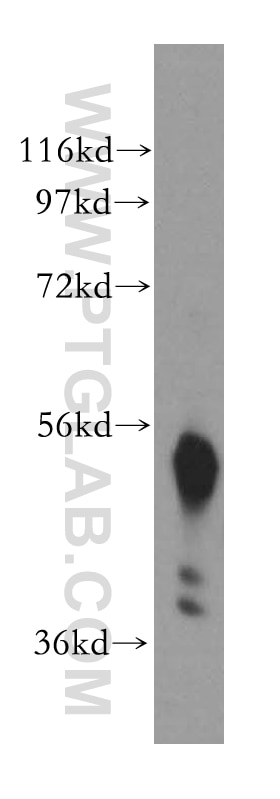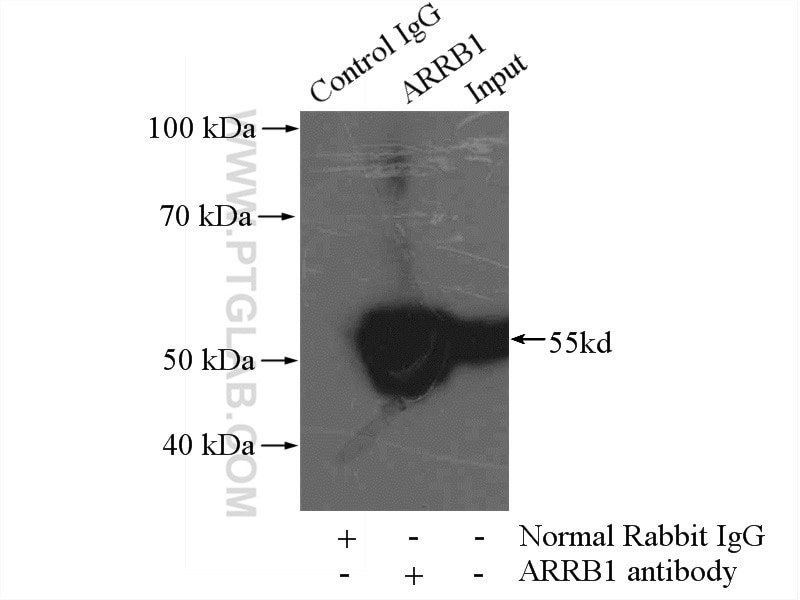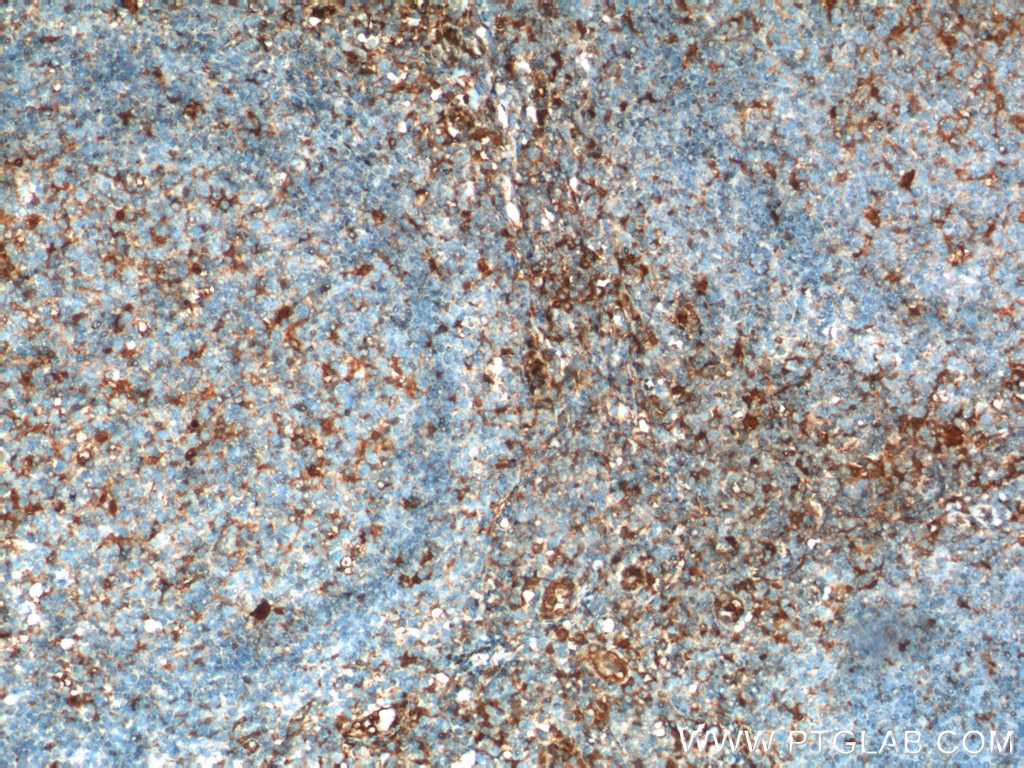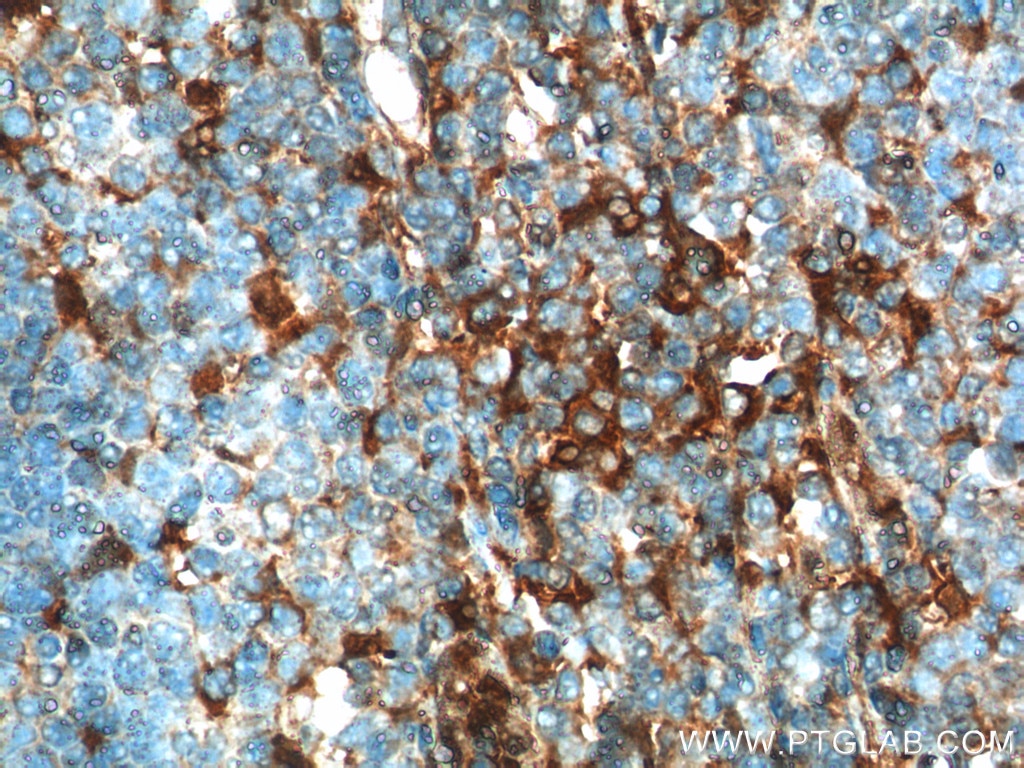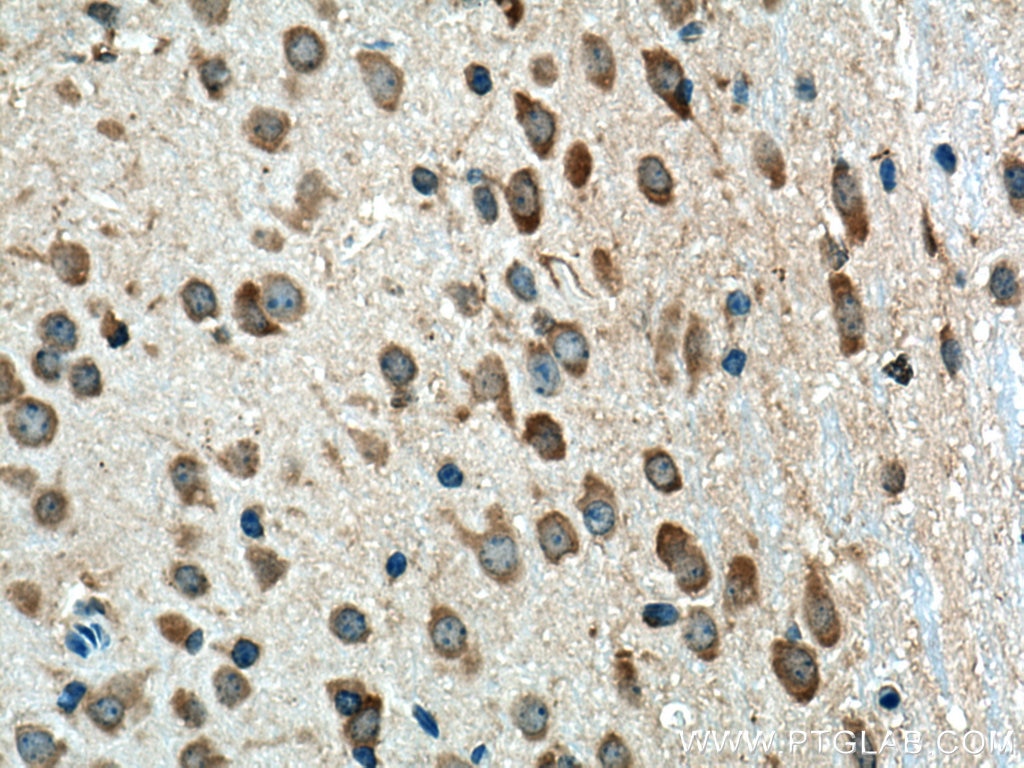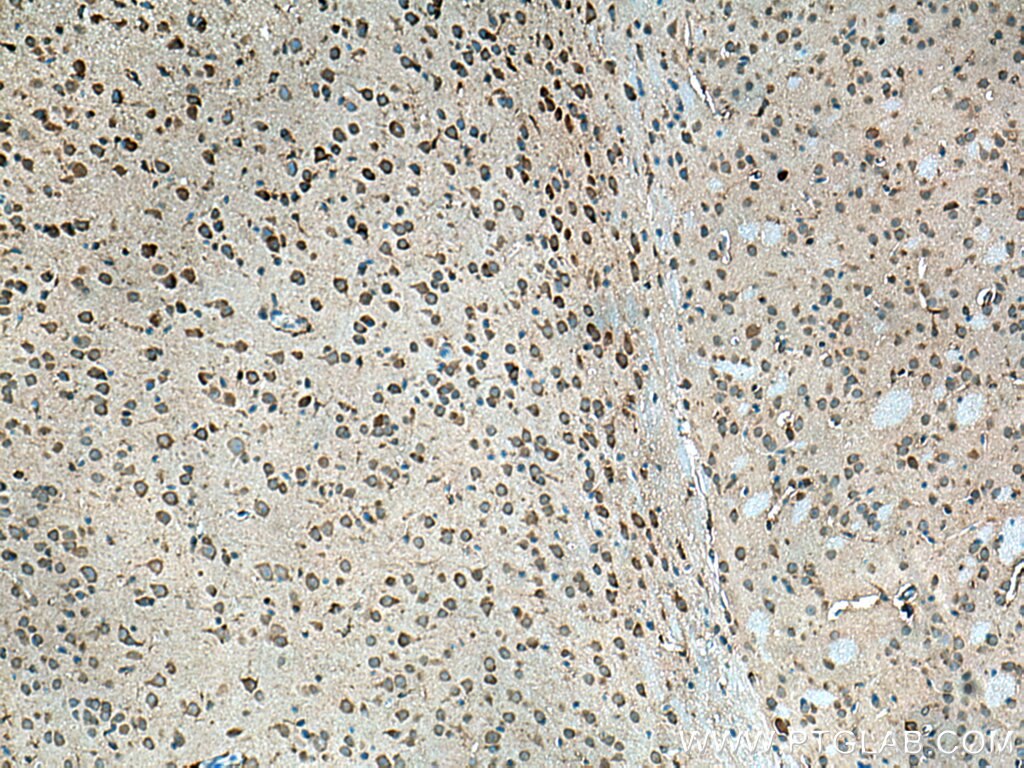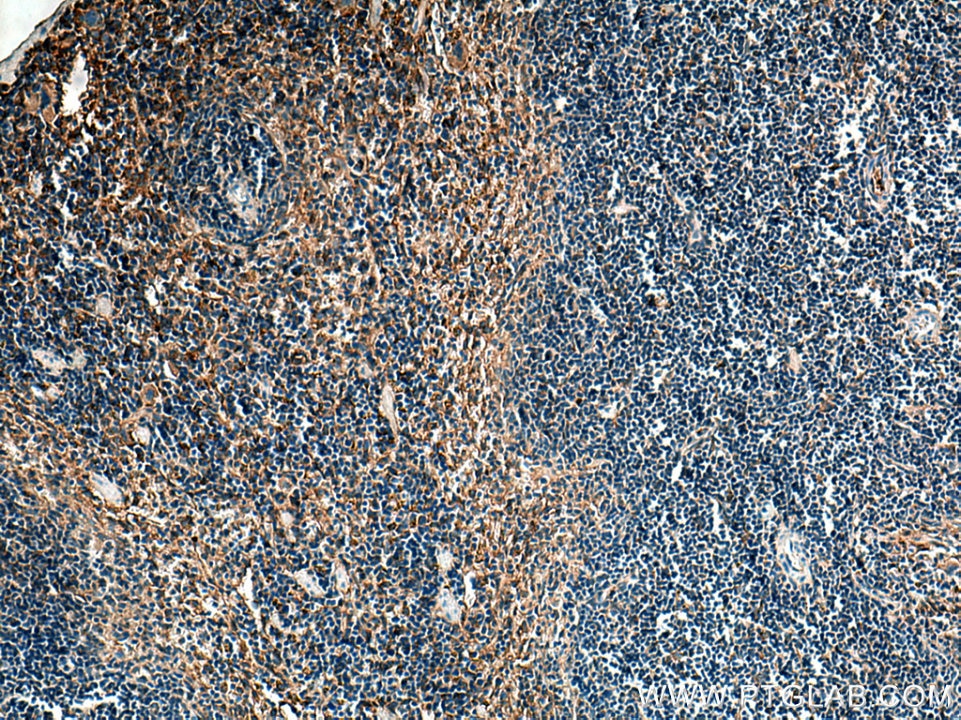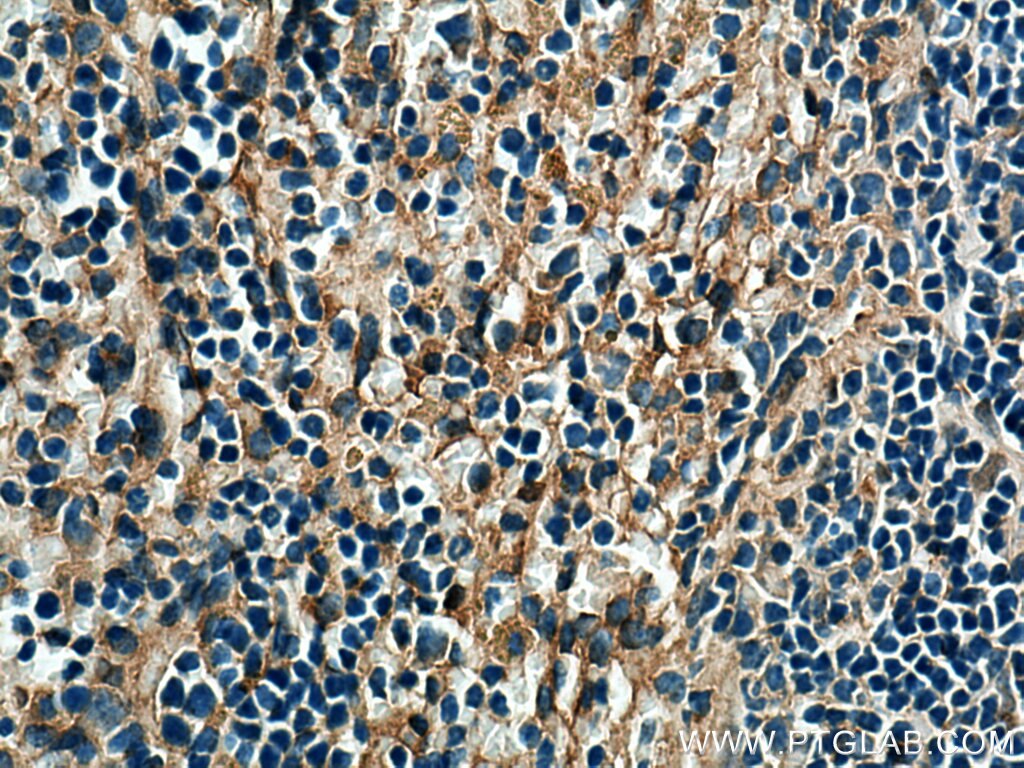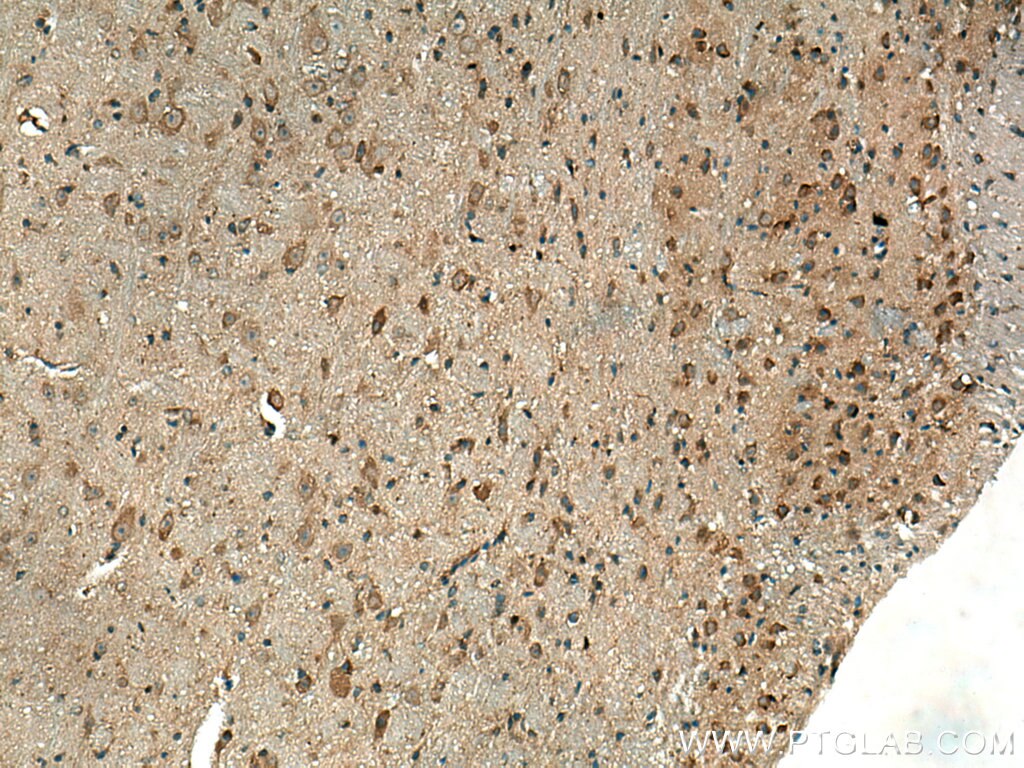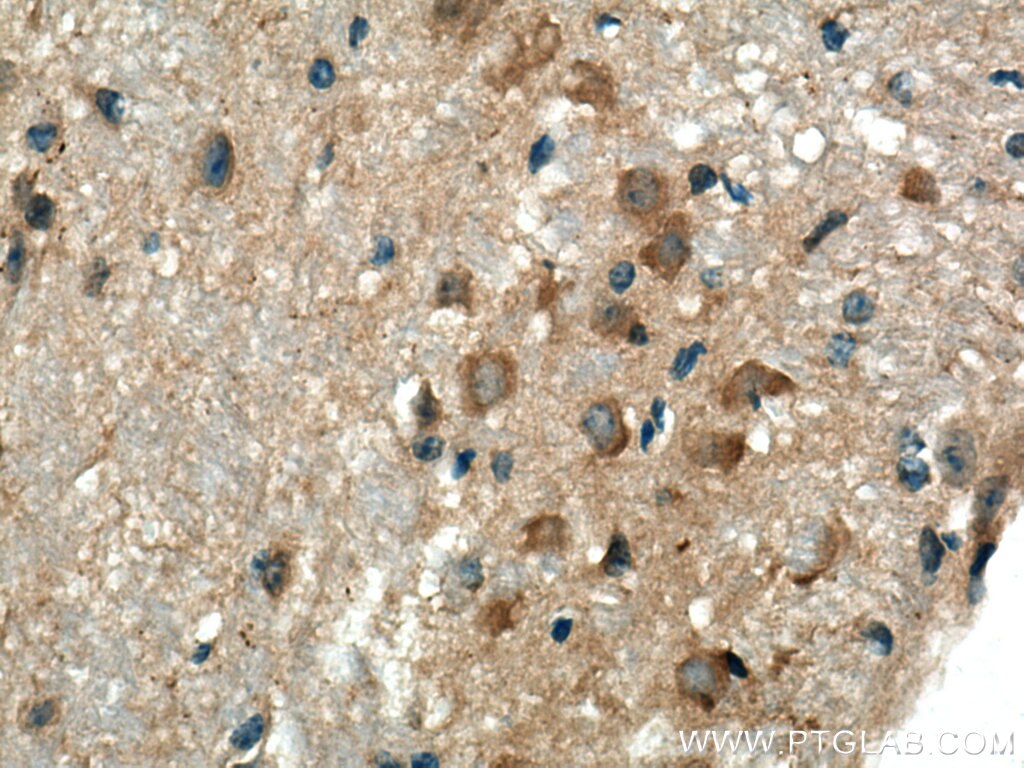Tested Applications
| Positive WB detected in | HEK-293 cells, A549 cells, U-937 cells, rat lung tissue, mouse lung tissue, RAW 264.7 cells |
| Positive IP detected in | mouse lung tissue |
| Positive IHC detected in | human tonsillitis tissue, mouse spleen tissue, mouse cerebellum tissue, mouse brain tissue Note: suggested antigen retrieval with TE buffer pH 9.0; (*) Alternatively, antigen retrieval may be performed with citrate buffer pH 6.0 |
Recommended dilution
| Application | Dilution |
|---|---|
| Western Blot (WB) | WB : 1:500-1:2000 |
| Immunoprecipitation (IP) | IP : 0.5-4.0 ug for 1.0-3.0 mg of total protein lysate |
| Immunohistochemistry (IHC) | IHC : 1:50-1:500 |
| It is recommended that this reagent should be titrated in each testing system to obtain optimal results. | |
| Sample-dependent, Check data in validation data gallery. | |
Published Applications
| KD/KO | See 3 publications below |
| WB | See 9 publications below |
| IF | See 4 publications below |
| IP | See 1 publications below |
| CoIP | See 1 publications below |
| ChIP | See 1 publications below |
Product Information
15361-1-AP targets Beta Arrestin 1 in WB, IP, IF, IHC, CoIP, ChIP, ELISA applications and shows reactivity with human, mouse, rat samples.
| Tested Reactivity | human, mouse, rat |
| Cited Reactivity | human, mouse, rat |
| Host / Isotype | Rabbit / IgG |
| Class | Polyclonal |
| Type | Antibody |
| Immunogen | Beta Arrestin 1 fusion protein Ag7608 Predict reactive species |
| Full Name | arrestin, beta 1 |
| Calculated Molecular Weight | 47 kDa |
| Observed Molecular Weight | 47-55 kDa |
| GenBank Accession Number | BC003636 |
| Gene Symbol | Beta Arrestin 1 |
| Gene ID (NCBI) | 408 |
| RRID | AB_2060227 |
| Conjugate | Unconjugated |
| Form | Liquid |
| Purification Method | Antigen affinity purification |
| UNIPROT ID | P49407 |
| Storage Buffer | PBS with 0.02% sodium azide and 50% glycerol , pH 7.3 |
| Storage Conditions | Store at -20°C. Stable for one year after shipment. Aliquoting is unnecessary for -20oC storage. 20ul sizes contain 0.1% BSA. |
Background Information
β-Arrestins (ARRBs), the best known regulators of G protein-coupled receptor signaling, are versatile and multifunctional adapter proteins that regulate diverse cellular functions, including cell growth, apoptosis and immune responses. Overexpression of beta Arrestin 1 has been found in various cancers, indicating it as a potential therapeutic target for cancer treatment. Recently expression of ARRB1 in saliva has been identified as a candidate circadian biomarker. ARRB1 migrated as a doublet of two bands of 45 and 55 kDa (PMID:28947386).
Protocols
| Product Specific Protocols | |
|---|---|
| WB protocol for Beta Arrestin 1 antibody 15361-1-AP | Download protocol |
| IHC protocol for Beta Arrestin 1 antibody 15361-1-AP | Download protocol |
| IP protocol for Beta Arrestin 1 antibody 15361-1-AP | Download protocol |
| Standard Protocols | |
|---|---|
| Click here to view our Standard Protocols |
Publications
| Species | Application | Title |
|---|---|---|
Cell Metab Autonomous sensing of the insulin peptide by an olfactory G protein-coupled receptor modulates glucose metabolism.
| ||
J Cell Biol BBSome trains remove activated GPCRs from cilia by enabling passage through the transition zone. | ||
Cell Death Dis β-Arrestins promote podocyte injury by inhibition of autophagy in diabetic nephropathy. | ||
J Biol Chem An ionic lock and a hydrophobic zipper mediate the coupling between an insect pheromone receptor BmOR3 and downstream effectors.
| ||
PLoS One Cell Survival Following Radiation Exposure Requires miR-525-3p Mediated Suppression of ARRB1 and TXN1. | ||
Oncol Rep Blue light irradiation inhibits the growth of colon cancer and activation of cancer‑associated fibroblasts. |
